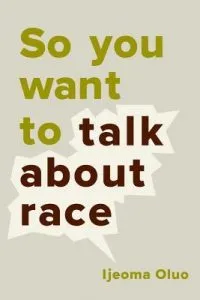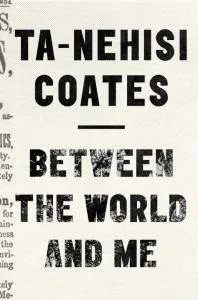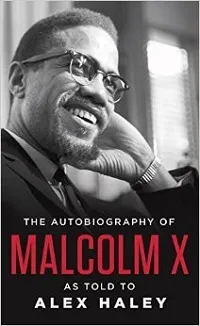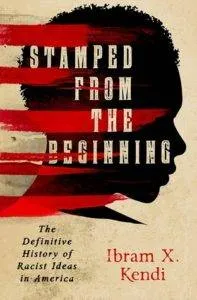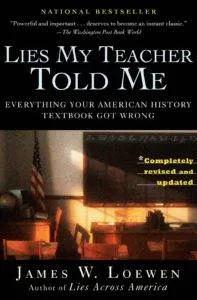
So You Want to Be Woke: A Reading Guide for White People
This content contains affiliate links. When you buy through these links, we may earn an affiliate commission.
So you just realized that we’re a nation with a crapton of unresolved issues that still plague whole populations of people to this day? You might be asking yourself: “What can I do?”
This is a question that people ask me often (though not often enough) about how they can help combat racial inequality. While the answer varies depending on who you talk to, a central component always seems to be “educate yourself.” Books about race are usually well-researched, powerful tools in the war against racism. Also be sure to check out BookRiot’s “How to Be an Anti-Racist Reader”!
What follows is a collection of just some of the works that offer enlightenment in the complex world of racial issues. And it also has limits, being primarily focused on American authors and issues. So, remember that this is just a starting point for one’s racial education. Let’s begin!

We’ve all seen a conversation about race go wrong. People hurt each other’s feelings, overlook experiences. Sometimes people don’t possess enough information to actually have the discussion in the first place. It ends in tears, or a screaming match.
But it doesn’t have to. Ijeoma Oluo offers straightforward solutions to these divides and inspires everyone to have difficult, crucial discussions. She answers the questions you’re afraid to ask, and does it beautifully.
“Not all white people.” “All lives matter.” “I don’t see color.” These are statements that often mean well, but often derail a larger conversation that needs to be had. Fleming takes a no-BS approach to the ridiculous proverbs that plague common racial rhetoric. She expertly breaks down why these sayings are useless and ineffective. Plus, the writing is exquisite. Every line is a mic drop. Paired with Oluo’s book above, these will get you understanding a lot in a little bit of time.
If you haven’t heard of this one, you must have been living under a rock. Ta-Nehisi Coates (pronounced Ta-Na-Ha-See) blew the world away with this memoir. Critics fawned over Coates’s beautiful writing, a literary style that brings eloquence to a subject many have trouble writing about. I’ve had non-black people read this and literally say, “Oh. I get it now.” So, explore this portrait of Black America. This is required reading for everyone.
This is a feminist anthology. What is it doing here, you might ask? Well, on your journey to wokeness you will soon come to know that all struggles are intersectional. That is, they exist at intersections with each other. For example, a black woman’s oppression is much different from a black man’s, or a white woman’s. Why? Because they exist at the intersection of racism and sexism. These writings, which explores queer, gender, race, and class theory, are the backbone of much modern discussion. It also includes well-known names like Audre Lorde and Gloria Anzaldúa.
If you haven’t heard of this one…well, we have a lot more work to do than I thought. This, from one of the most influential Black activists of all time, is something you will not forget. There is so much here, from the chilling premonition that Malcolm believed he would “die by violence,” to endless mic drops like this: “this was my first lesson about gambling: if you see somebody winning all the time, he isn’t gambling, he’s cheating.”
Schools are nearly as segregated now as they were in the 1960s. How is that possible, you wonder? Well, racism of course. It rears its ugly head in the form of school closings, gerrymandering, and neglect. This book will break your heart as it details everything from a hunger strike to stop a school from closing to parents fighting for their child’s right to learn. Although this book focuses on Chicago, the poster child for racist schooling systems, this is an issue everywhere. Unfortunately, schools have always been a breeding ground for racism.
This National Book Award winner stamps out (heh) the notion of a post-racial society with its history of racist ideas. Racist ideas, this book argues, evolve into different language as other language becomes politically incorrect. And, you guessed it, it has evolved into the year 2018, where it is alive and well. In addition, Kendi suggests that racism did not grow from “ignorance” but malicious, intelligent minds. These minds knew that they would land on top if they pushed others to the bottom. This is surely an insidious idea, but a well-supported one, as seen in the text.
Ready for your mind to get blown? Helen Keller and Martin Luther King Jr. were socialists. Most people knew the world wasn’t flat when Columbus “discovered” America. And Lincoln was a racist.
Okay, so maybe you already knew all that. But the point is, a lot of people don’t. The American education system fails so completely in historical study, and Loewen points it out in a scathing indictment. Not only does it isolate students of color, it romanticizes history and sets up American heroes as gods capable of no wrong.




